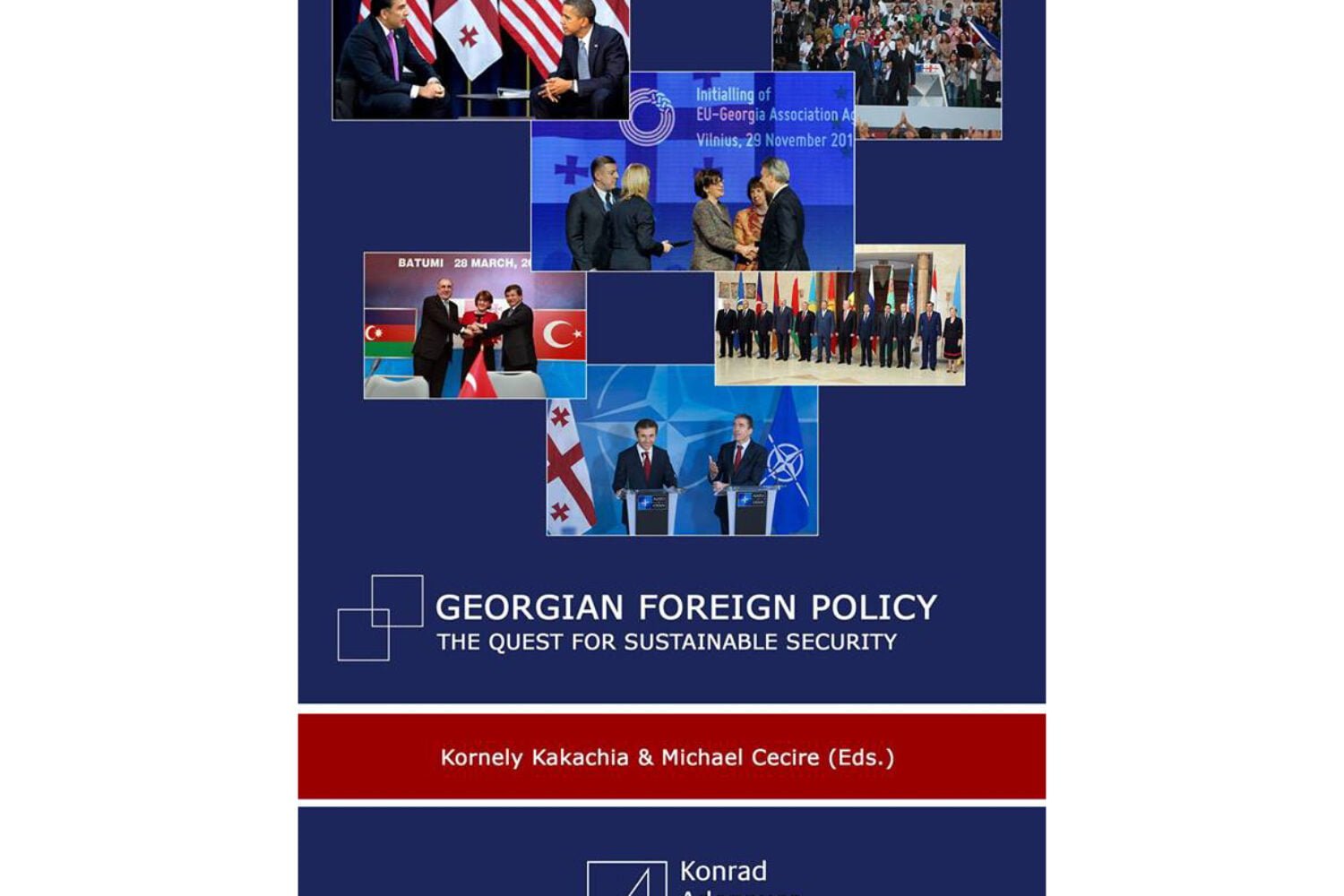2013-02-07 17:17:47
Georgia’s foreign policy has been the object of study in many books and articles. However, this is the first attempt to collect the perspectives and analyses of a variety of international experts within a single publication.This book from the Georgian Institute of Politics and the Konrad Adenauer Foundation examines some of Georgia’s most important foreign policy issues and partnerships.It also allows the reader to compare different issues and topics, developments,trends and scenarios and their impacts on Georgia’s evolving foreign policy context. This publication offers chronological accounts of Georgian foreign policy along wiith explorations of identity and ethnicity’s roles in framing foreign relations. This volume also considers Georgia’s integration processes into the Euro-Atlantic space as well as relations with its neighbors and partners: the U.S., Russia, Ukraine, Turkey, Armenia, Azerbaijan, Iran, and the Baltic States.
The book contains various articles elaborating the directions, dilemmas, and opportunities of Georgia’s foreign relations. Contributing authors include Ghia Nodia (Ilia University), Stephen Jones (Mt. Holyoke College), Kornely Kakachia (Tbilisi State University), Zaur Shiriyev (Caucasus International), Mamuka Tsereteli (Johns Hopkins University), Dr. Neil MacFarlane (Oxford University), Michael Cecire(GIP), Renata Skardiute-Kereselidze (GIP), Levan Kakhishvili (GIP) and many others.In cooperation with the Konrad Adenauer Stiftung, we expect this volume to contribute to further academic debate on the complexity of factors relevant to the formulation and implementation of security policy strategies of Georgia. Members of academia, the think tank community, and researchers studying Georgia and the region should find this a comprehensive and informative resource. It should also be a valuable piece of work for political decision-makers and even the general public.



